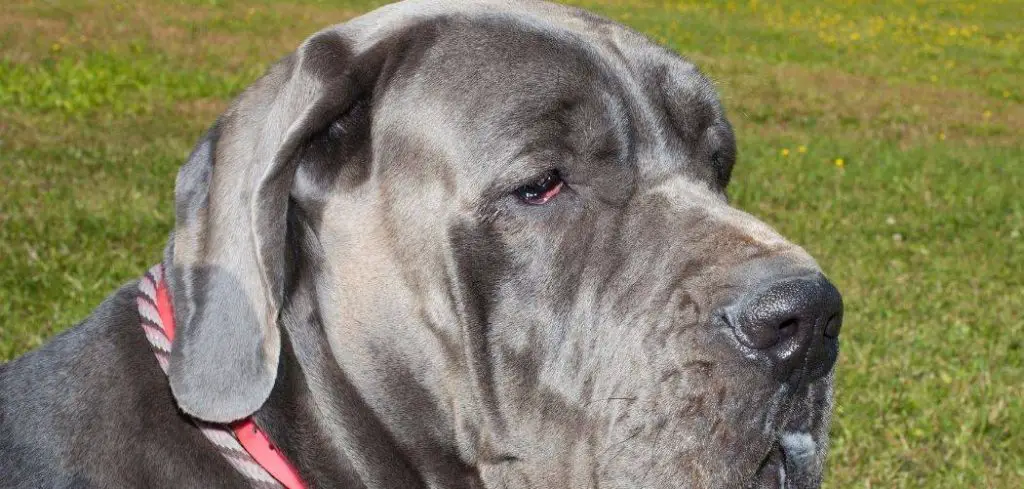It’s alarming to see your dog panting excessively, especially when it’s not hot or after any exercise.
When paired with signs of weakness or coughing, it can be a red flag for something more serious—like congestive heart failure.
We outline the connection between panting excessively and congestive heart failure in dogs, what you can do at home, and when to seek veterinary help.
Table of Contents
Dog Panting Excessively and Congestive Heart Failure — Why It Happens
Panting in dogs with congestive heart failure (CHF) is often a sign of poor oxygenation and fluid buildup in the lungs. Dogs with CHF may struggle to get enough oxygen, prompting them to breathe rapidly or pant even while at rest. The failing heart can’t pump blood efficiently, causing fluid to accumulate in the lungs (pulmonary edema) or belly (ascites), both of which put stress on the respiratory system.
Other conditions like high blood pressure, arrhythmias, or a prior heart murmur may also contribute to excessive panting. The symptom is typically persistent and not linked to temperature or exercise.

Dog Panting Excessively and Congestive Heart Failure: Common Causes
Mitral Valve Disease
Mitral valve disease is a common cause of CHF, especially in small and older dog breeds.
This condition occurs when the valve between the heart’s left chambers fails to close properly, allowing blood to leak backward.
Over time, this inefficiency causes enlargement of the heart and a buildup of pressure in the lungs, leading to fluid accumulation.
Your dog may start panting more to compensate for the reduced oxygen flow, and you may also notice coughing, fatigue, or a bloated belly.
Left untreated, mitral valve disease can quickly worsen and significantly affect your dog’s quality of life.
Read more: Dog Panting Excessively (Here’s why)
Dilated Cardiomyopathy (DCM)
DCM affects the heart muscle, making it weak and unable to pump blood effectively.
It’s more common in large-breed dogs like Dobermans, Boxers, and Great Danes.
With DCM, the heart’s chambers enlarge, reducing the strength of each beat.
This inefficient circulation leads to fluid buildup in the lungs and abdomen.
Your dog may begin panting excessively even when resting, along with exhibiting lethargy, reduced appetite, or fainting spells.
Pulmonary Edema
This refers to fluid in the lungs, a hallmark of CHF.
Pulmonary edema causes shortness of breath, leading to persistent or sudden episodes of panting.
It can develop rapidly or gradually, depending on the stage of heart failure.
Dogs with this issue may also have a moist or crackling sound when breathing, reluctance to lie down, or bluish gums.
Immediate veterinary care is crucial if you suspect pulmonary edema.
Arrhythmias
Irregular heartbeats can throw off the timing of blood flow, making the heart less efficient.
When circulation is compromised, tissues—including the lungs and muscles—receive less oxygen.
This oxygen deficit triggers panting, restlessness, and even collapse in severe cases.
Arrhythmias can accompany other heart diseases or appear as a standalone issue.
Your vet may diagnose it through ECG monitoring or a Holter monitor.
Pericardial Effusion
This is the accumulation of fluid around the heart within the pericardial sac.
It puts pressure on the heart, restricting its ability to pump effectively.
This pressure can lead to CHF symptoms like heavy panting, weakness, and collapse.
Some dogs may show a swollen abdomen or pale gums.
Treatment typically involves draining the fluid (pericardiocentesis) and managing the underlying cause.
High Blood Pressure (Hypertension)
Chronic hypertension can damage the heart and exacerbate CHF.
The increased pressure makes it harder for the heart to circulate blood, contributing to fluid buildup in the lungs.
Your dog may pant excessively to try and get more oxygen, even in cool environments.
High blood pressure in dogs often stems from kidney disease or endocrine disorders like Cushing’s.
Managing the underlying condition is critical to reduce cardiac strain.
What to Do If Your Dog Is Panting Excessively Congestive Heart Failure
If your dog has already been diagnosed with CHF, monitor their breathing rate and behavior daily.
Keep your home cool, quiet, and stress-free to reduce strain on the heart.
Administer prescribed medications like diuretics (e.g., furosemide) and ACE inhibitors as directed by your vet.
Avoid strenuous activity and ensure your dog stays well-hydrated but not overfed.
Weigh your dog regularly—sudden weight gain may indicate fluid retention.
Elevate their food and water bowls to ease neck and chest pressure during eating.
Most importantly, don’t wait to call your vet if breathing worsens or new symptoms appear.
When to Call or Visit Your Vet
Call your vet immediately if your dog:
Is panting excessively at rest or while sleeping.
Has pale, blue, or grayish gums or tongue.
Develops a persistent cough, especially at night.
Appears weak, disoriented, or suddenly collapses.
Shows a swollen belly or labored breathing.
Even if your dog has a known CHF diagnosis, new or worsening symptoms can signal a serious complication.
Early intervention can significantly improve outcomes and comfort.
Read more: Dog Panting Excessively in Heat (Why it happens)
Key Takeaway
When your dog is panting excessively due to congestive heart failure, it’s a sign that their heart and lungs are under distress.
Recognizing the underlying cause—whether mitral valve disease, DCM, or fluid buildup—is essential to managing their health.
With proper veterinary care and diligent at-home management, many dogs with CHF can still enjoy a good quality of life.
Always keep a close eye on breathing patterns and call your vet with any changes.
